We didn’t need to wait for the presidential election campaigning period to officially begin before controversy reared its head. While he’s qualified to run for president for the second time—and seems quite optimistic about his chances—Tan Kin Lian’s social media posts are now catching up with him.
Over the years, the guy has been known for inane social media posts that veer into the creepy, such as talking about how he goes for walks to look for “pretty joggers”, or publishing videos of “pretty girls” without consent. He clearly knows that women don't like having their photos taken without their permission, because he even made a joke about it before. "This pretty chick does not object to her photo being taken," he wrote in the caption of a 2021 Facebook post with a photo of a chicken. "Why some girls object?"
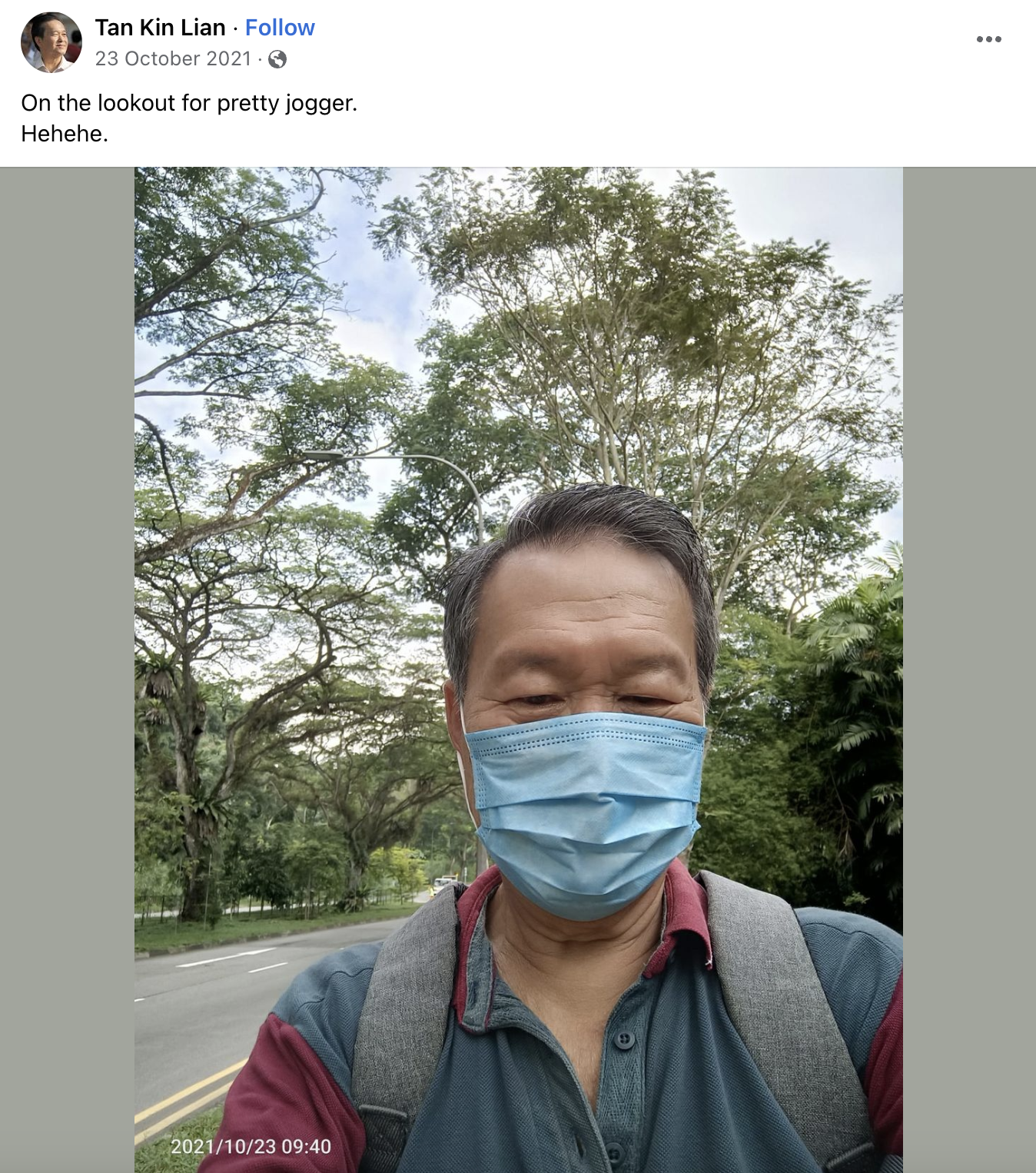
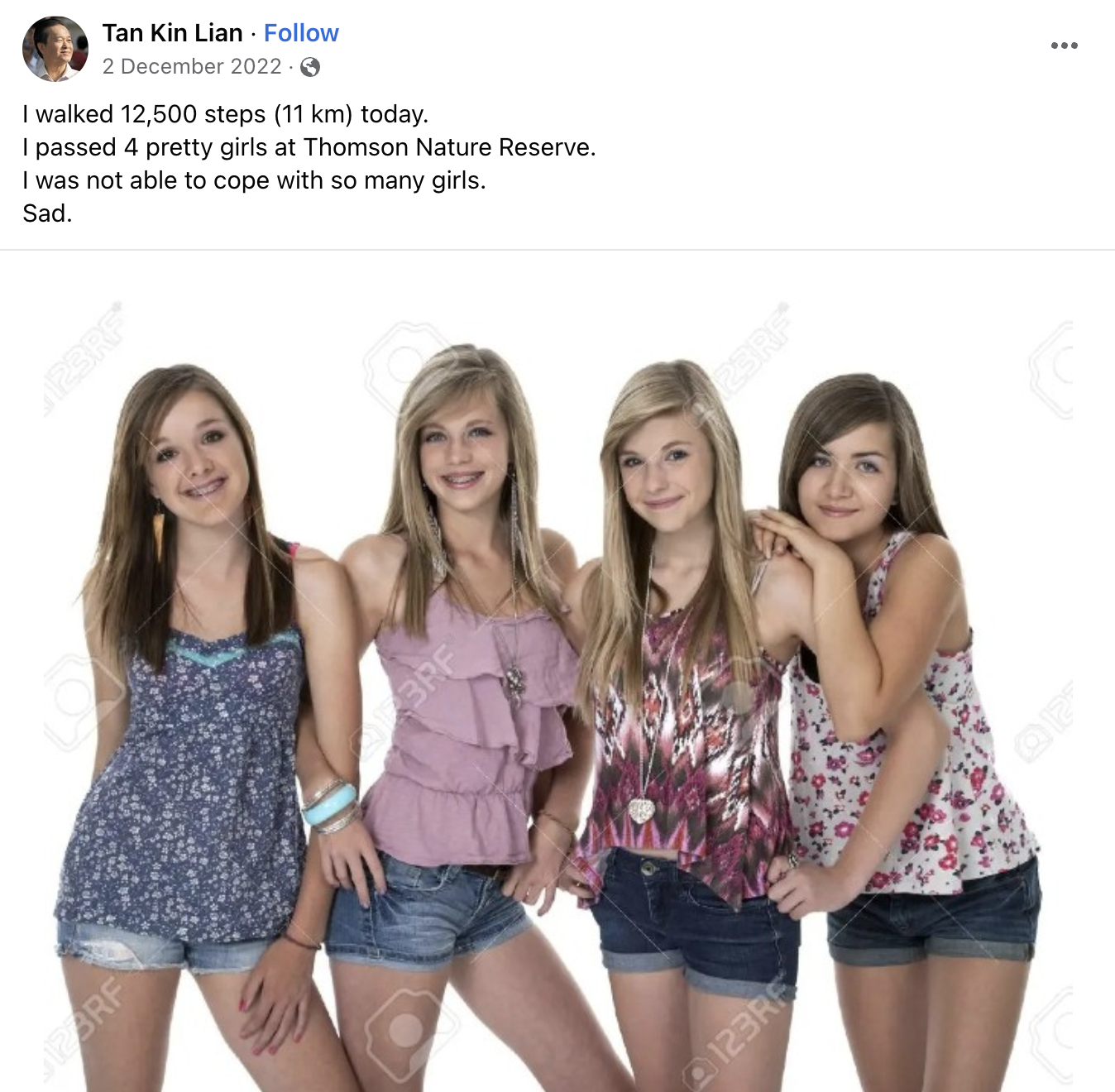

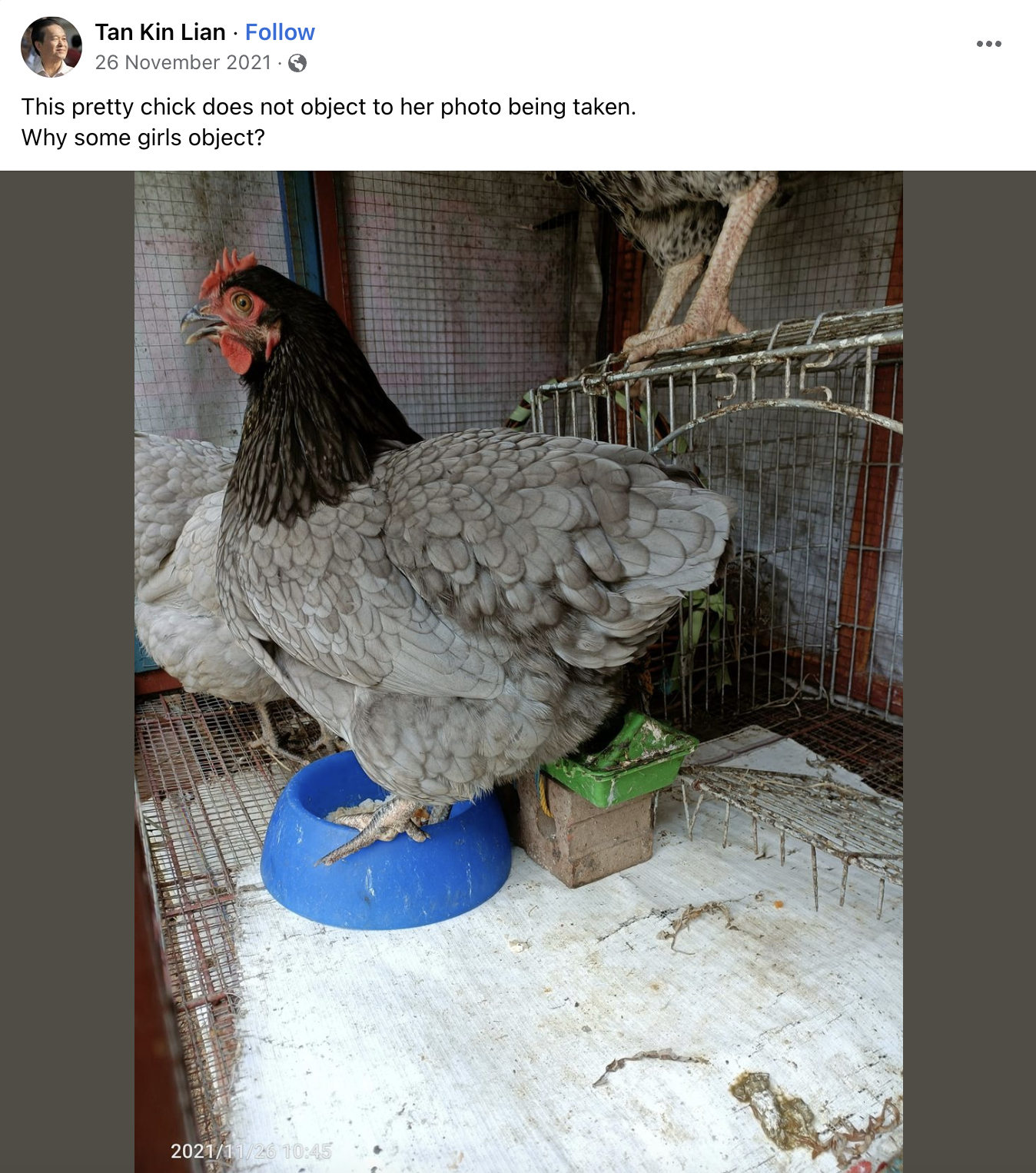
A gallery of facepalm.
These were cringe ‘aiyoh cheekopek’ posts before, but they’ve taken on extra significance and relevance now that Tan is trying to become Singapore’s head of state. Whether they surfaced organically, or were seeded by a rival’s campaign (which is par for the course in politics), the fact is that he did post these things and behave in this way. And let’s not forget the racist stuff too:
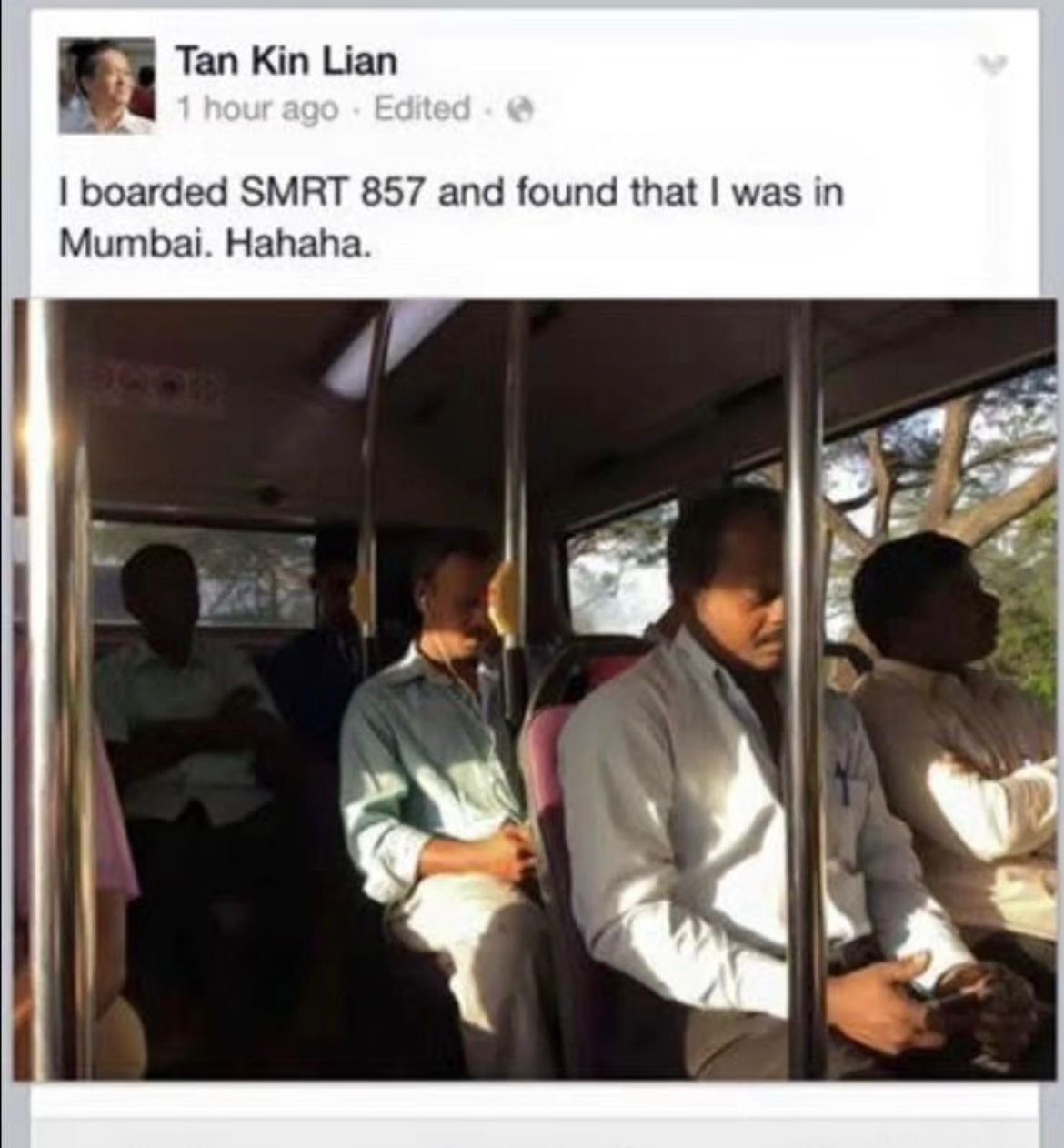
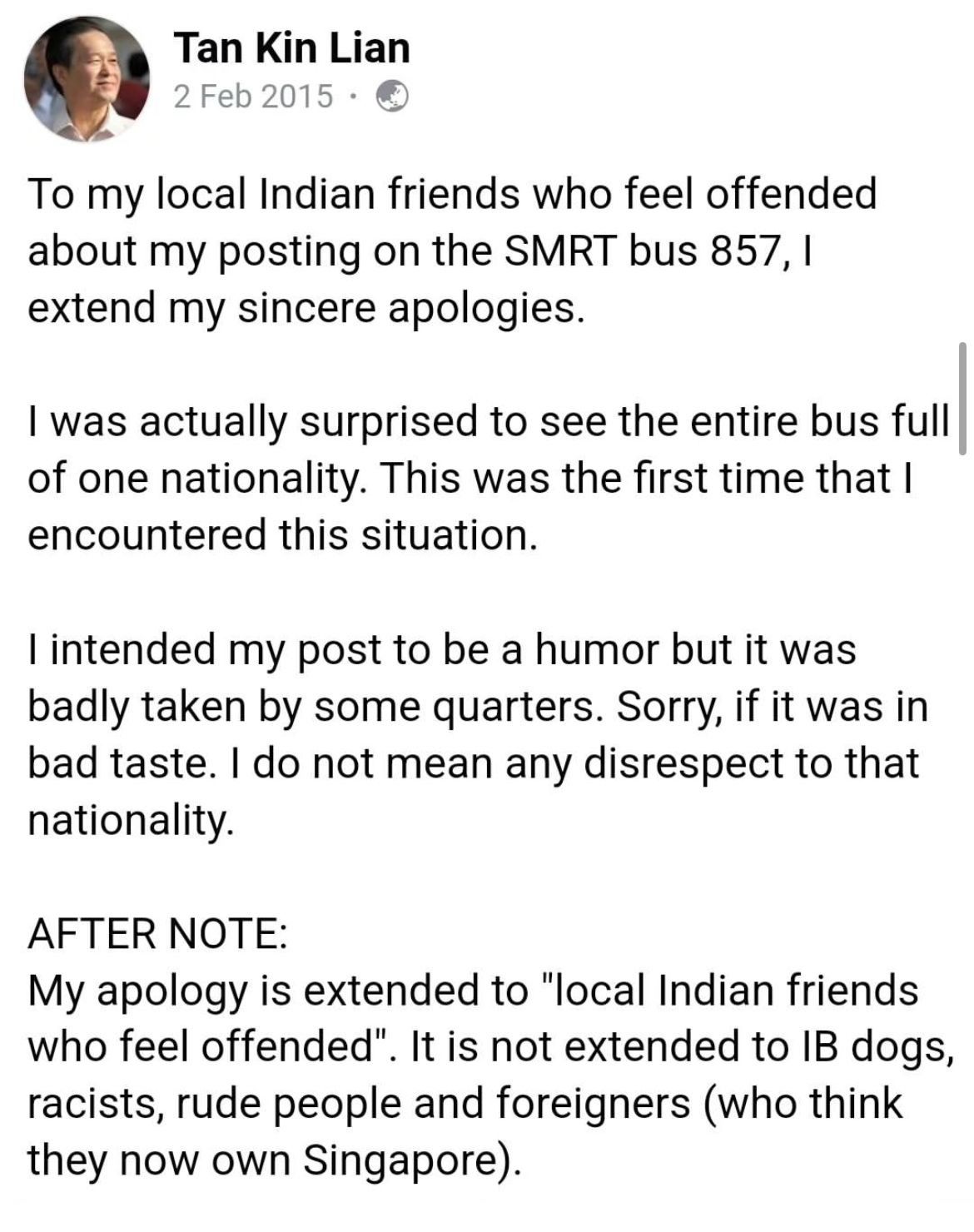
A comment, then an apology only to "local Indian friends who feel offended".
